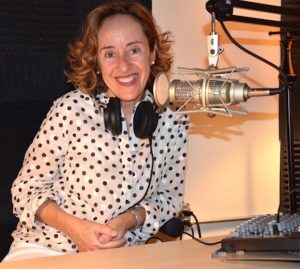I’m old enough to remember watching the televised Watergate hearings, and today’s live broadcast of former FBI Director James Comey testifying before the Senate Intelligence Committee was no less riveting. It was so hard to look away from the television, I nearly missed my noon deadline for uploading today’s episode of The Agewyz Podcast. Somehow I pulled it off, achieving a personal milestone in the process: production and release of episode #100.
Producing a weekly podcast all on your own takes stamina (thanks for that gene, Mom), but the people I’ve interviewed—caregivers, professionals in the field of aging and artists using media to address major healthcare issues—have more than made up for any fatigue I’ve felt running this marathon. I’ve been humbled by a former Marine fighting for veterans and their caregivers, uplifted by a millennial playwright who chose to tackle Alzheimer’s in her first full-length play and anguished by a daughter using every penny she earns to pay for her mother’s care. Over the course of these 100 interviews, family secrets have been shared and strained relationships laid bare. Grief and angst have been tempered with laughter and celebration—for getting mom or dad to smile, or to the bathroom before it’s too late. Each conversation has felt like a deep dive into a hidden world, one rarely portrayed in the mainstream media but alive and active in closed Facebook groups, where caregivers vent, and in quiet artist studios or offices where grassroots work persists—with virtually no assurance from policymakers that the needs of our aging culture will ever be addressed.
I am in awe of the guests I’ve been privileged to interview for The Agewyz Podcast, who reflect the millions of paid and unpaid caregivers everywhere who endure in the face of hardship, their lives upended and transformed by the blessings and burdens of care.
My goal with The Agewyz Podcast has always been to get beyond the statistics and hear from the people actually doing the work, not just so we have a better understanding of what it means to be a caregiver but to give caregivers a voice and help them feel less isolated. It is my hope that by sharing these stories we can change the narrative around care and create a caring culture in the fullest sense of the phrase.
We have a real opportunity to get care right. So let’s keep talking. Here’s to the next 100 episodes!


 Scattered: My Year As An Accidental Caregiver is available in paperback and eBook at
Scattered: My Year As An Accidental Caregiver is available in paperback and eBook at



